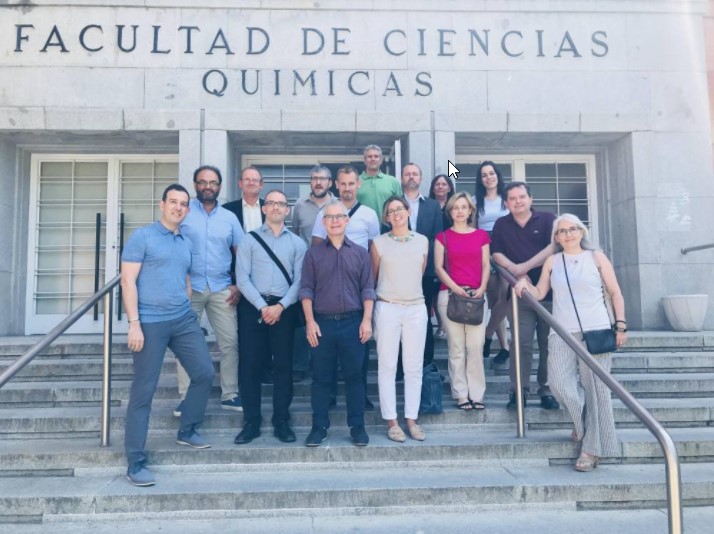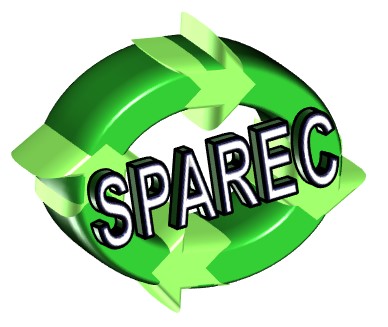Sustainable Processing of Agrofood Residues to Elicitors and Chemicals
Introduction / Background
The core of the project is focused on proposing sustainable processes from both an environmental and an economical point of view, being involved into the concept of circular economy. It is designed using an integrated biorefinery concept, which ensures a comprehensive use of material and energetic resources, while food residues are valorized, reusing valuable components at the farm and at industrial level.
Innovative solutions to waste streams in the wine and fruit juice industries are looked for in this project, extracting medium to high-added value mixtures that are or can be used as ingredients, chemicals and additives in the food; chemical and cosmetic industries; or as plant immune-system elicitors in green-houses and farms, reducing the need for agrochemicals.
Processes to value-added products from wastes are physical, chemical, physicochemical, enzymatic and microbiologic, and products will be tested for their antioxidant and plant immune system elicitor capacity, this latter at lab, pilot-plant and field scales. Therefore, the proposed strategies will reduce waste treatment costs, while improving economics at the food industry and farm levels.
The consortium is well balanced considering the complementary scientific and economic background, expertise and capabilities (fundamental and applied research, laboratory, demonstration and production capacities, and public/industrial participation) of the partners to successfully address the ambitious project objectives. It is formed by eight partners from four European countries and comprises two universities (Complutense University of Madrid –Spain- and Université de Picardie Jules Verne –France-), two public research institutions (National Institute of Agriculture and Food Research and Technology -Spain- and Paper and Fiber Research Institute –Norway-) and four SMEs (ASA Spezialenzyme –Germany-, ELYS Conseil SASU –France-, Plant Response, and Pago de Carraovejas –Spain-).
Aim
SPAREC's goal is to recover high value-added compounds based on waste and by-products generated in vineyards, wineries and other agri-food sectors. To increase the competitiveness of the sector, identify the key needs and technological challenges faced and overcome them through innovative initiatives.
Expected results
Processes to value-added products from wastes are physical, chemical, physicochemical, enzymatic and microbiologic, and products will be tested for their antioxidant and plant immune system elicitor capacity, this latter at lab, pilot-plant and field scales. Therefore, the proposed strategies will reduce waste treatment costs, while improving economics at the food industry and farm levels.
Keywords
Food waste valorization, elicitors, control release, nanocellulose, phenolics

Project consortium
Coordinated by
Prof. Victoria E. Santos - Complutense University SPAIN
Partners
- SPAIN: The National Institute for Agricultural and Food Research and Technology, PlantResponse S.L. and Pago de Carraovejas
- NORWAY: RISE-PFI
- FRANCE: Université de Picardie Jules Verne and ELYS Conseil SASU
- GERMANY: ASA Spezialenzyme GmbH
Runtime project
The SPAREC project started on 01/04/2018 and runs 31/12/2021
Follow the project
More information
Research articles
- Production of Oligosaccharides from Agrofood Wastes, 2020
- The SPAREC project progresses with the development of elicitors and chemicals, 2020
- Characterization of Porous Structures of Cellulose Nanofibrils Loaded with Salicylic Acid, 2020
Press releases
- http://www.akatavino.es/pago-de-carraovejas-proyecto-europeo-sparec.html
- http://www.articai.es/la-gestion-de-la-idi-internacional-toma-fuerza-en-articai-con-la-presentacion-de-sparec/
- https://www.pagodecarraovejas.com/pago-carraovejas-participa-proyecto-europeo-id-sparec-aprovechar-los-subproductos-generados-los-procesos-vitivinicolas/
